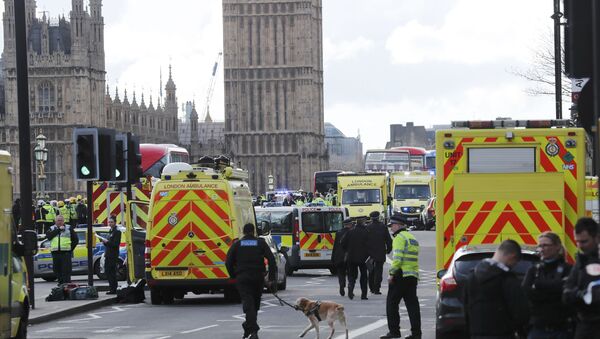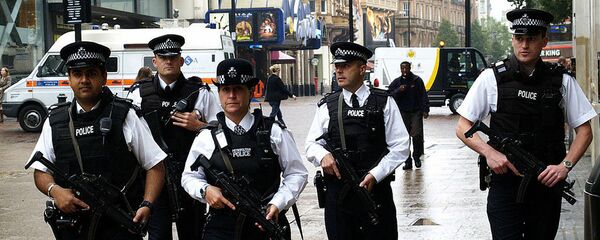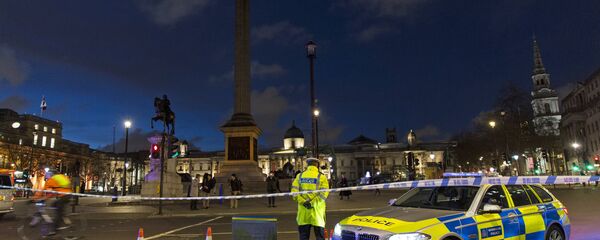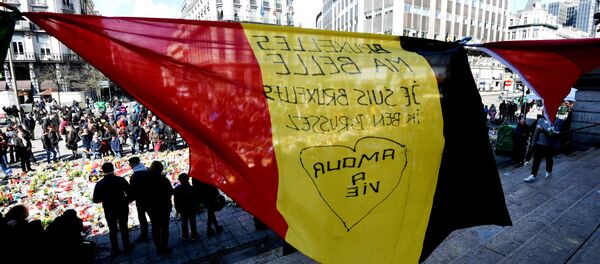London police believe they have identified the perpetrator, but will not name him publicly at this point.
Shortly after the incident, british media reported that the attacker was identified as Abu Izzadeen, born Trevor Brook, known for his links to terrorism. However, ABC reported, citing Izzadeen's lawyer, that he was still in jail and, therefore, could not have committed Wednesday’s carnage.
Wednesday’s attack came exactly a year after the March 22, 2016 explosions in Brussels and the start of an antiterrorist conference in Washington.
Britain in trouble
Wednesday’s attack came 12 years after a series of early morning explosions (three in the London Underground and one on a bus) left 52 people dead. Police later said that the terror attack, the bloodiest in UK history, had been organized by al-Qaeda.
A series of riots that engulfed northern London in August 2011 laid bare the Muslim migrants’ failure to integrate into British society and the law enforcement’s failure to respond in a timely manner to disturbances caused by angry Muslim youths.
On May 22, 2013 two machete-wielding British citizens of Nigerian descent slaughtered army drummer Lee Rigby in London and on August 2, 2016 a woman was stabbed to death and five people were wounded by a 19-year-old Norwegian of Somali descent.
Symbolic coincidence
Experts were quick to notice the coincidence between Wednesday’s attack in London, the first anniversary of the deadly explosions in Brussels, which killed 32 people, and the start of an international antiterrorist conference in Washington.
It looks like the terrorists sneer at the security measures taken in the West and demonstrate that no place in Europe, no matter how well secured, is immune to their attacks.
The problem is that many Muslims living in Britain embrace radical Islam and hundreds of their men and women have joined the ranks of jihadist militants fighting in Syria and Iraq, RT wrote.
Moreover, the number of “disloyal” Muslims inside Britain could run into tens of thousands.
In February 2017, five teenagers were arrested in London on charges of planning to joint their jihadist brethren fighting in Syria and Iraq and stage a series of terror attacks in the UK.
Scotland Yard counter-terror chief Mark Rowley said earlier this month that police are concerned about "everything from fairly simple attacks with knives or using vehicles all the way through to the more complex firearms attacks."
As safe as it may look against the backdrop of deadly terrorist attacks in Paris, Nice, Brussels and Berlin, the United Kingdom could now be in for more tragic events like the one than happened in London on Wednesday.
Echo of ill-advised policy
In Moscow, Sergei Zheleznyak, a member of the State Duma’s International Affairs Committee, blamed Wednesday’s tragedy in London on what he described as “the terrible echo of the ill-advised migration policy of the majority of European countries used to taking orders from Washington and Brussels.”
“How many more people will have to die before politicians in London, Paris, Berlin and Brussels realize the need to jointly fight the terrorist threat?” Zheleznyak wondered.
Alexander Mikhailov, FSB Major-General (Retired) and President of the Russian Anti-Terror Fund agreed, saying that Britain is facing a threat even the entire Western world is unable to deal with alone.
“There is more to this problem than just Daesh propaganda. Europe is actively introducing anti-religious values like a tolerant attitude toward sexual minorities. Local Muslims refuse to accept this and some of them resort to terrorism to vent their anger,” Mikhailov told RT.
Lessons of Belgium attacks learned (almost)
Exactly a year ago, on March 22, 2016, 32 people were killed and dozens were injured in Daesh-organized attacks at Brussels international airport and a city metro station.
The attacks came even though Belgium had raised its terrorism alert to “serious and imminent” following the November 2015 carnage in Paris.
In response, the Belgian government proposed a raft of new counterterrorism laws and regulations. However, some of them, including on the use of additional security measures during a state of emergency, increasing the duration of pretrial detention to 72 hours from 24 now and measures preventing the radicalization of young people in mosques, were either voted down in parliament or have not yet taken effect.
The government also introduced a system of video monitoring of license plates of vehicles, stepped up border controls and banned the sale of SIM-cards for cellphones to people without identification documents.
A new terror attack possible
Still, many of the police officers stationed at Brussels’ Zaventem airport think that attacks like the ones that happened last year could happen again.
“Security at Zaventem is one big flop. Today a man with a bomb will have no problem getting inside,” one of them told the local media on condition of anonymity.
Others admitted that with the existing security system at the airport a new terror attack remained a possibility.
“There are two officers “armed” with a metal detector manning the entrance. They don’t check everyone’s baggage and, besides, they never use metal when making a bomb,” another officer told RT.
Never miss a story again — sign up to our Telegram channel and we'll keep you up to speed!





